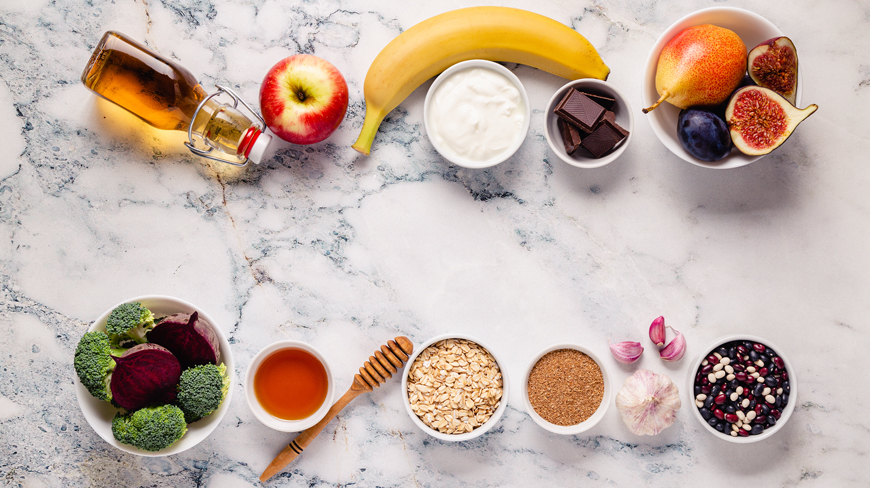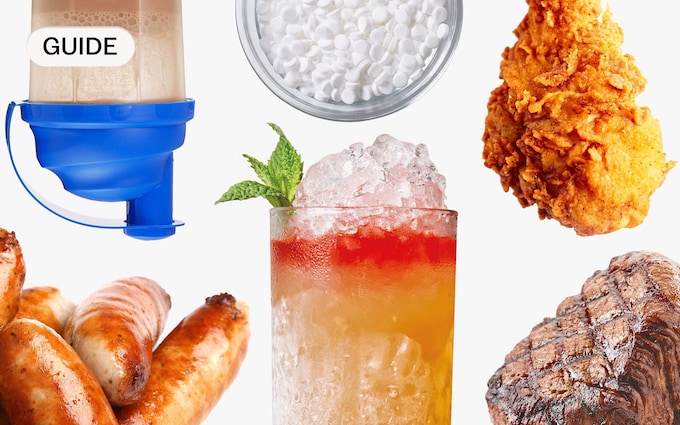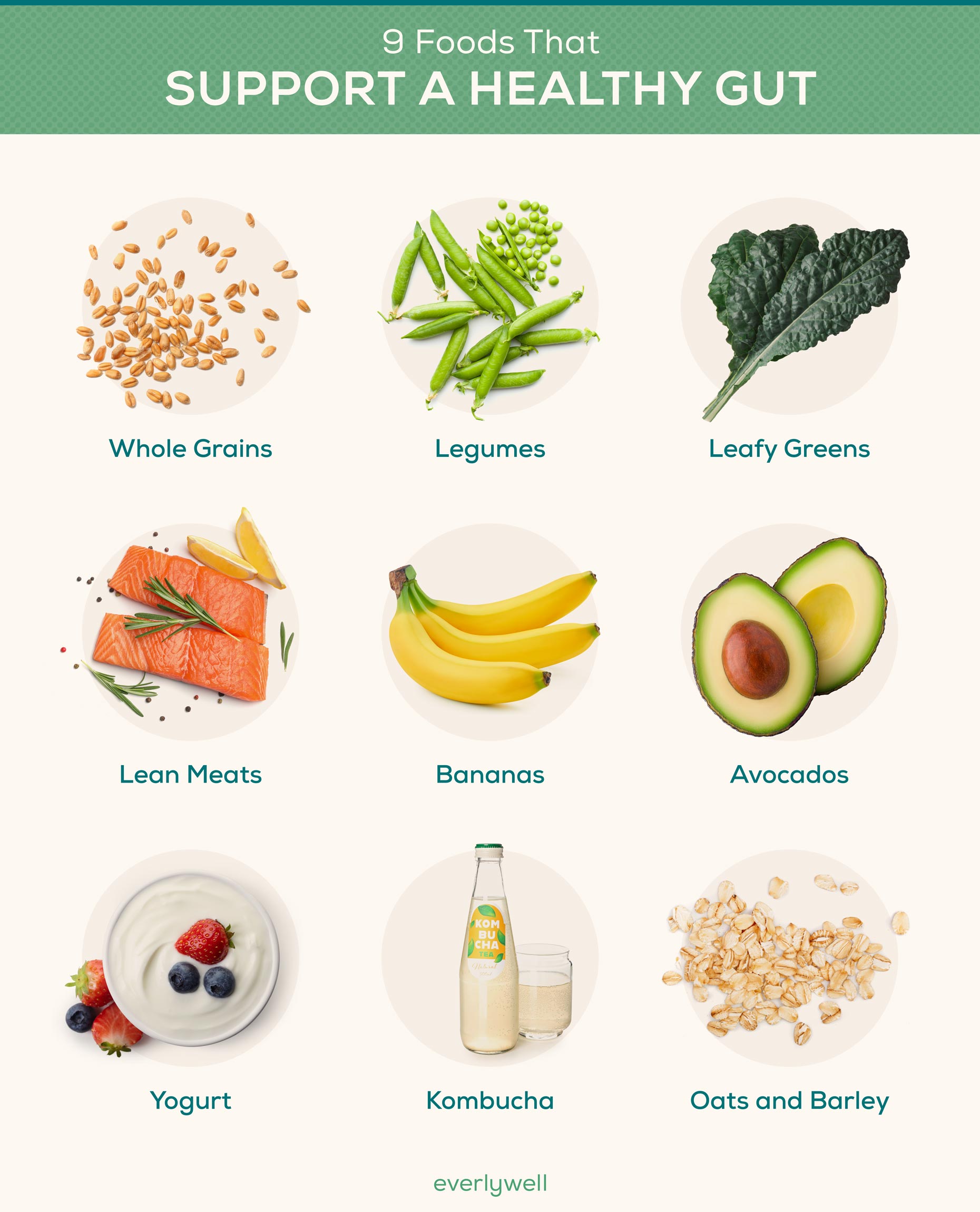Have You Ever Wondered What Foods Might Be Sabotaging Your Gut Health?
When thinking about maintaining or improving your overall well-being, gut health might not be the first thing that comes to mind. Nevertheless, it’s incredibly significant. The health of your gut plays a pivotal role in not only your digestive system but also your immune system, mental health, and more. A happy gut equals a happy you, right? So what happens when certain foods creep into your diet and start wreaking havoc on this crucial part of your body?

Understanding Gut Health
Let’s start by breaking down what we mean by “gut health.” The term may sound like a modern trend, but it’s actually a fundamental component of your overall health. Your gut is home to trillions of bacteria, collectively known as the gut microbiome. This diverse community is responsible for helping with digestion, absorbing nutrients, and protecting against harmful bacteria. A balanced gut microbiome is like a well-tuned orchestra, where each part works harmoniously.
The Role of Bacteria in the Gut
Imagine your gut as a bustling city. Within it, beneficial bacteria contribute positively by aiding digestion, synthesizing vitamins, and creating a barrier against outside invaders. But like any city, you also have the not-so-great bacteria that can cause disturbances if they outnumber the good ones. These disruptions can result in a variety of health issues, from bloating and discomfort to more severe illnesses.
Foods That Can Harm Your Gut
Now that we know just how significant gut health is, let’s talk about the foods that can throw this delicate system off-balance. Some of these might surprise you, as they are commonly consumed or even labeled as harmless. That’s where mindfulness in eating comes into play. Let’s break down these gut-offending foods.
Processed Foods
Processed foods can be tempting with their convenience and long shelf-life, but here’s the kicker—they may not be your gut’s best friend. Processed foods often contain unhealthy fats, additives, and chemicals that could potentially disrupt your gut microbiome.
Understanding Additives and Preservatives
Additives like emulsifiers and artificial sweeteners aren’t just there for taste and texture—they can mess with your gut health. Studies have shown that these ingredients can impact the balance of bacteria in your gut, possibly leading to inflammation or increased permeability, commonly known as “leaky gut.”
High-Sugar Foods
We all enjoy a sweet treat now and then, but too much sugar can lead to an unhealthy gut. High sugar intake, particularly from refined sources, can encourage the growth of harmful bacteria and yeast, like Candida, which might lead to digestive issues.
The Science Behind Sugar and Gut Health
Excessive sugar feeds the harmful bacteria and yeast in your gut, causing an imbalance. When harmful microbes flourish, they can crowd out the beneficial bacteria and potentially lead to conditions like small intestinal bacterial overgrowth (SIBO).
Artificial Sweeteners
You might reach for a diet soda as a “healthier” option, but artificial sweeteners like aspartame and saccharin can negatively affect your gut microbiome. These sweeteners pass through the gastrointestinal tract without being absorbed, altering your gut flora.
The Impact on Microbial Balance
Artificial sweeteners can promote the growth of bacteria associated with metabolic diseases. Studies have suggested that they might impact the body’s ability to regulate blood sugar levels by affecting the gut microbiome.
Fried and Greasy Foods
Fried foods are often high in unhealthy fats, which can be tough on your digestive system. Trans fats and hydrogenated oils, often found in fried foods, are known to negatively impact heart health, and they can similarly meddle with your gut health.
Dairy Products
While some people can digest dairy without any issues, others can find it troublesome. Lactose intolerance means your body lacks the enzyme lactase, needed to break down lactose, leading to bloating and discomfort.
Looking at Lactose Intolerance
For those with lactose intolerance, consuming dairy can lead to an overgrowth of lactose-fermenting bacteria, causing discomfort and disrupting the natural balance of gut flora.

Foods That Can Repair Damaged Gut Health
Now that you are aware of the usual suspects that can disrupt your gut, let’s focus on the foods that can help restore and maintain a healthy gut environment.
Fermented Foods
Fermented foods are perhaps the gut’s best allies. Rich in beneficial bacteria known as probiotics, they can help replenish and maintain the balance of healthy bacteria in your gut.
Examples of Gut-Friendly Fermented Foods
| Food | Description |
|---|---|
| Yogurt | Contains live cultures of probiotics |
| Sauerkraut | Fermented cabbage rich in lactic acid bacteria |
| Kimchi | Spicy, fermented Korean dish |
| Kefir | Fermented milk drink with diverse probiotics |
| Kombucha | Fermented tea with beneficial bacteria |
High-Fiber Foods
Dietary fiber is essential for healthy digestion. It keeps things moving along smoothly by adding bulk to the stool and can promote beneficial bacteria in the gut.
Soluble vs. Insoluble Fiber
- Soluble fiber: Dissolves in water and forms a gel-like material, which can help lower blood glucose and cholesterol. Found in oats, nuts, and seeds.
- Insoluble fiber: Promotes movement through the digestive system and increases stool bulk. Found in whole grains and vegetables.
Prebiotic Foods
Prebiotics are specialized plant fibers that nourish the good bacteria already present in your gut, acting as food for these beneficial microbes.
Foods Rich in Prebiotics
- Garlic
- Onion
- Leeks
- Asparagus
- Bananas
Simple Steps to Improve Your Gut Health
Taking small, consistent steps can lead to significant improvements in your gut health. Here’s how you can put your dietary knowledge into practice.
Reducing Processed Food Intake
Gradually replacing processed foods with whole, natural foods can make a big difference in your gut health. Focus on foods with minimal ingredients to ensure you’re consuming fewer additives and preservatives.
Balancing Sugar Consumption
Reducing your intake of high-sugar foods and drinks can help maintain a healthy balance of gut bacteria. Opt for naturally sweet sources, like fruits, to satisfy your sweet tooth.
Incorporating Probiotics and Prebiotics
Integrate both probiotics and prebiotics into your diet to support the balance of your gut microbiome. Regular consumption can contribute to improved digestion and overall health.
Staying Hydrated
Hydration plays a vital role in gut health. Water helps flush out toxins and aids in the absorption of nutrients. Aim for at least eight glasses of water a day to keep your digestive system humming along smoothly.

Conclusion
Your gut health is far more important than you might think. With its extensive role in digestion, immunity, and even mental health, maintaining a healthy gut is crucial for your overall well-being. By being mindful about what you eat—avoiding gut-destroying foods and incorporating gut-friendly options—you can support a thriving gut microbiome. Small changes can lead to a healthier gut, and in turn, a healthier you.
Final Thoughts
Think of your gut as a cherished garden that requires nurturing and the right balance of nutrients to flourish. With a little knowledge and effort, you can tend to it carefully, ensuring that it remains healthy and vibrant. Making conscious food choices not only impacts your gut but enhances your quality of life. As you embark on a journey toward better health, remember that every choice you make counts. May your path to wellness begin with the foundation of a happier gut!
